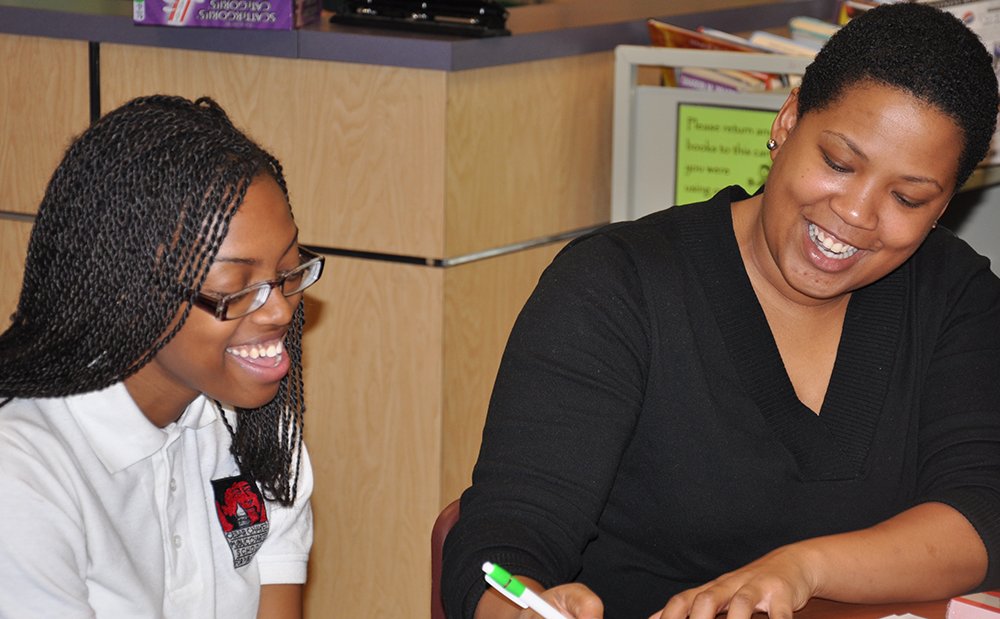
By: Jamila Sams, Program Director, Mentor Foundation USA
“If we silence the youth, prepare for the consequences.” – Chuck D.
On June 10th, 2014, the Office of National Drug Control Policy and the US Department of Education brought together some of the nation’s leading experts in the fields of academia and substance abuse disorders to discuss innovative programs and policies that unite both agencies while making the correlations between substance abuse and low student achievement.
As an organization that empowers youth with facts about substance abuse and allows them to use their voice to speak up and out against drugs and alcohol, Mentor Foundation USA had a seat at the table of this important discussion.
What makes Mentor Foundation USA’s approach to prevention different is that we allow young people to amplify their voice and share their opinions about substance abuse. By giving them this opportunity, it opens dialogue between youth and the adults in their lives. It also helps them to feel respected knowing that their opinion matters. Through expression, we are strengthening their critical and analytical thinking skills. It was an honor to be asked by Deputy Director, David Mineta of ONDCP to invite some of our students to interact with policy makers on this critical issue.
The conference opened with a poem shared by TC Williams High School students who participated in the recent Mentor Foundation USA Shattering the Myths Youth Rally at their high school.
“I see my friends doing it all the time. Cloaked in denial and weed smoke. Swearing it isn’t a gateway drug as they begin to fall deeper and deeper in with each experiment.
Who can blame us?
All our heroes did drugs and changed the world and never had problem, right?
I mean look at Jimmy Hendrix and Hemingway and Phillip Seymour Hoffman and Brittany Murphy and Michael Jackson and so on and so on.
You would think that in school we would be taught about the faults in our stars instead we begin to idolize and mimic.
But if stars are just merely the remaining light of dead suns why does the world teach children to want to burn out so quickly?
Why does every song on the radio tell me that all my problems can be solved by a zip and a double cup?
Why does every commercial tell me that there is a prescription for everything that ails me in this reality?
For every one voice we hear telling us drugs and alcohol can lead to addiction and ruin lives.
There are 100 telling us that it’s fine.”
Poem written by Patrick Ensslin & Jalisa Orellana students from TC Williams High Schools performed at the White House.
Although I made some great connections with experts in the education and substance abuse fields and I learned about various research-based theories of how student achievement is impacted negatively by substance abuse, I could not help but to revert to the age old question; “What came first, the drugs or the reason?” Of course, the chance of anyone under the influence of drugs and alcohol falling short of their potential greatness academically and socially cannot be argued.
However, I fail to understand why we spend so much of our efforts being reactive to our young people’s struggles with drugs and alcohol instead of being proactive. Proactive measures for ensuring our young people are living healthy and productive lives include:
Engage and Listen: All stakeholders in the lives of children should be actively and positively engaged in their lives. Parents, schools, agencies that support children, businesses, etc… all have a collective responsibility for the development of our young people. What that means is we need to keep them active in activities that foster healthy and positive growth such as sports, community associations, career exposure, youth rallies, community service learning, and leadership opportunities, but most importantly LISTEN! Ask their opinion, how they are feeling, what they are doing and actively listen to what they have to say.
Learn & Do Something: Our youth cry out to us for help everyday, but instead of focusing on the causes of their actions, we use punitive measures to “correct” them. Measures such as suspension, expulsion, incarceration etc…instead of more supportive measures like mental health counseling, teaching tolerance and positive conflict resolution. We also at times lack the ability to teach positive coping mechanisms because as adults, we were not taught these very same skills as youth; therefore, we do not know how to manage our feelings and develop healthy and positive ways of overcoming challenges.
“Why does every song on the radio tell me that all my problems can be solved by a zip and a double cup?
Why does every commercial tell me that there is a prescription for everything that ails me in this reality?”
As I read this line in the students’ poem, I ask myself, Are we the problem?
“The Center on Alcohol Marketing and Youth (CAMY) say that teen exposure to alcohol advertising exploded by 71 percent between 2001 and 2009. Companies use hip music, young actors and music to reach out to younger audiences. Evidently black teens have the greatest exposure to alcohol marketing compared to the overall teen population, with 32 percent more magazine ads reaching them in 2008 than all other young people, and 17 percent more exposure via TV.”
How long are we willing to make excuses instead of ensuring that our youth grow up in environment that promotes healthy and positive lifestyles? It is convenient to play the blame game and push for zero-tolerance laws and policy for substance abuse, increased funding for treatment and criminalize youth for their decisions, but at some point we need to have a long look at the “inner child” staring back at us in the mirror and ask ourselves; “Are we a part of the solution or are we a part of the problem?